Organizations
Organizations are the true power of society – the ability to confederate with like-minded individuals and achieve something greater that one’s own ability, perhaps something that will last beyond one’s own lifetime. Many powerful Organizations exist in the world, each with their own range and influence. Characters may become members of these Organizations, trading autonomy for authority and resources.
Organization Types
Organizations come in four types, each with their own advantages and approaches.
Military Organizations
Military Organizations get and maintain power through force of arms, and are most commonly found as the Noble Houses that rule various regions of the world. Military powers may be as small as a single family of landless Knights serving a noble lord, a mercenary company, local brigands, or as powerful as the royal lines of Hestralia, or the Imperial family.
MERCHANT Organizations
Merchant Organizations wield their power through finance and trade, and are usually in the form of Guilds. Small commercial powers may be a local market trade Guild, while larger ones can be found as international powers such as the National Hestralia company.
Outlaw Organizations
Outlaw Organizations are criminal enterprises that get and keep power through subversive or exploitative means. Outlaw groups can be found in the form of local gangs, or more established groups of Thieves’ Guilds. Larger outlaw groups may rise to international power, such as insurgent groups vying to overthrow established powers, such as the Highlander rebels that resist Rogalian rule in Dunland, or networks of spies or assassins. Many of the most powerful Outlaw groups are not well-known, as befits the shadowy nature of their work.
Scholarly Organizations
Scholarly Organizations establish themselves around tradition and learning, and often wield great informal influence over aspects of daily life. The most well-known Scholarly group, the Church of Mankind, has offices and agents nearly everywhere in the world, while maintaining smaller local chapters in the form of local cults. Despite their name, the Magician Guilds are also primarily a Scholarly group, their resources bent toward the acquisition and distribution of specialized knowledge.
The Church and the Magician Guilds vie for control of the same resources – the expectations and natural belief of the public. As the people rely more on magic instead of faith to solve their problems, the Church’s control wanes, just as areas where the Church holds great sway see Magicians shunned for their arts.
Hybrid Organizations
Some Organizations have more than one type. For instance, a local Outlaw gang may branch out and maintain a force of brigands that raid isolated towns, taking aspects of a Military Organization. Similarly, a mercenary group may begin as a Merchant group and branch out to a Military one, or vice versa. The Mage Guilds are often as much a Merchant power as they are a Scholarly one, while the Air Guild has aspects of an Outlaw Organization. An Organization can pay a cost in Influence, discussed below, to add a secondary template.
Organizations may only ever have one extra Template, which costs 10 Influence to start, and they add 5 extra Influence to the cost of Agents for each Tier of a second kind that the Organization has.
Influence And Agents
Organizations gain power over time by accumulating Influence. Influence acts similarly to Experience Points, but for an Organization. Different advantages can be purchased for an Organization using Influence, and its power can grow over time. Every kind of Organization grants its members a specific task that can be used to earn an Achievement. These can be turned into Influence, and then belong to the Organization. Some Organization types (Military and Scholarly) allow another kind of Achievement to be used for Influence. Any character can give an Organization influence, but only Officers may spend it.
The power of an Organization comes from the its members. Characters within the Organization that fulfill special roles are called Agents, and they each have a unique ability. Different types of Organizations have different Agents, and the abilities that they grant give them their unique advantages in the world. Some Agents can be given Influence to increase their effect, and some special Agents require Influence in order to perform their action. Establishing new Agents costs Influence, and the cost to attract them is based on the Organization’s Tier. An Agent may only take its action once per Chapter. If an Organization needs to use an Agent’s action more than once at a time, it must have more than one Agent of that type.
Influence can also be traded between Organizations, and thus can be used as a form of currency between powerful groups. A noble may demand Influence in exchange for their family’s protection to a local Blacksmith’s Guild, or a Guild might instead ask Influence from a noble to form a patron-client relationship in exchange for access to their services at a favorable rate. Transfers of Influence between Organizations is at a 2-to-1 ratio, unless they have formed a Formal Tie, public to all. In this case, Influence is a frictionless 1-to-1 exchange. Creating a Formal Tie costs 1 Influence per Tier, per side of the tie. For instance a Tier 1 and Tier 3 Organization creating a tie would need to spend 1 and 3 Influence, respectively.
Some Agents may also generate Resources, usually access to money or other fluid advantages. Resources acts exactly like Influence, and can be used to accumulate new Agents or pay additional costs, but cannot be traded outside of the Organization.
Cities and AGENt SLOTS
Organizational Tiers
As an organization gains power, they gain access to new and more powerful Agents, and thus new opportunities to continue to gain more control over the world, but scale comes at a cost. Larger and more established Organizations become burdened by bureaucracy and bloat, becoming more difficult to manage. Agents cost significantly more Influence to attract and install, and at higher Tiers, the Organization has an Influence overhead to maintain its position.
For this reason, many Organizations form relationships with smaller Organizations of a lower Tier, balancing their trust or control over them with the autonomy they have as a separate entity. For example, a powerful crime lord may permit a smaller gang to perform the smuggling operations in the area, establishing a Smuggler at their lower cost, but demand use of their services when asked. These relationships may be a Formal Tie, known to all, in order to easily exchange Influence, or might be informal to maintain a public distance.
Tier 1
Tier 1 Organizations are purely local and do not have Agents. The members are then entirely Player Characters, but they have the ability to accumulate Influence and eventually become more powerful.
Tier 2
Tier 3
Tier 3 Organizations acquire Agents for 10 Influence. They are usually the local authority within a given class of Organizations, and exert a dominating effect over lesser Organizations of their type , while vying for power with Organizations of other types, and may have some regional control. This is common for Noble Houses of the Graf rank, powerful legal or illicit guilds, or a local diocese.
Tier 4
Tier 4 Organizations acquire Agents for 15 Influence. These are regional powers that have spread their authority over several cities, such as nobles of the Duke rank. Each Chapter, Tier 4 Organizations must pay 1 Influence or lose an Agent.
Tier 5
Tier 5 Organizations acquire Agents for 20 Influence. These are world powers, and usually have many lower Tier Organizations under their control. Herzogs, Kings, the Church, Mage Guilds, and other world powers fall into this category. Each Chapter, Tier 5 Organizations must pay 5 Influence or lose an Agent.
The first change in Tiers from Tier 1 to Tier 2 Organization happens for a cost of 10 Influence, and they automatically gain their first Agent for this cost. Tier 2 Organizations get a public entry in the Scriptorium which lists the Organization’s known story and Agents.
Once an Organization has reached this level, they increase their Tier automatically as they increase in Agents. When an Organization has enough Agents they automatically raise a Tier. Organizations require 5 Agents for Rank 3, 15 Agents for Rank 4, and 30 Agents for Rank 5. Likewise Organizations that lose enough Agents fall back a Tier, though they do not lose existing Agents of higher Tier than their Organization. Organizations seeking to expand find that available territory to install their Agents for control is as much an impediment as the Influence required to recruit them.
Positions in the Organization
Military Organizations
Tier 1
Tier 2
Specialist Commanders
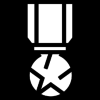
Captain
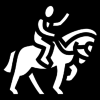
Outrider

WARDEN

TACTICIAN
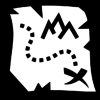
STRATEGIST
aides-de-camp
Aides-de-Camp are assistants that can be called upon to perform some specific function. Aides-de-Camp may only be called upon once per Event.
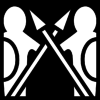
Watch Captain

Master Servant

Enforcer
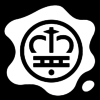
MESSENGER

Scout
Tier 3
Tier 3 Military Organizations usually have a noble at their head with the rank of Graf, Count, or regional equivalent, and hold authority over a small region, such as a small city and its nearby towns.
Military Organizations with a Knight Master may take the Levy action in Warfare to demand their peasants take up arms as soldiers. How effectively they may do so depends on which further Military Support Agents the Organization has. Requisition Points allow for Levies to take place, and every City can hold a maximum Requisition of 3 times the amount of Districts.
By default, Levies allow the calling of inexperienced “Green” Spearmen for 1 Requisition point. Military Support Agents allow Requisition to be spent for more advanced or better trained forces. Any Officer can call a Levy, spending as many Requisition points as they wish, but they may still only draw Military Supply through their Agents as quickly as the Agents themselves allow. Knights with the Oath of Protection may call levies from the specific town in their charge. Cities normally recover 1 Requisition point per Chapter.
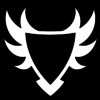
KNIGHT MASTER
The Knight Master maintains the military traditions of a Knighthood and organizes the army, allowing the Levy action. The first Knight Master of the Organization establishes the Order by Imperial Charter, and selects a Valor Skill to form the tradition of the Order.
The Knight Master allows the swearing of new Knights into the Order, which has a cost or benefit associated with it.
The Knight Master may extend their benefits to any Organization that has a Formal Tie to theirs and swears fealty, allowing smaller vassals to be part of the Order.
The Knight Master can add the personally train a unit to add the Valor quality to a Levy, which is required for Special Forces.

BOWYER

Drill MASTER

FORGEMASTER

STABLE MASTER
Tier 4
DIPLOMATS
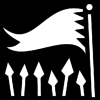
Field Marshal

Dilettante
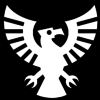
DIGNITARY

AMBASSADOR
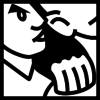
COURTIER
Tier 5
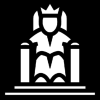
POTENTATE
MERCHANT Organizations
Tier 1
Tier 2
ASSISTANTS

CRAFTSMAN

GUILD DOG

SHOPKEEP

Barrister
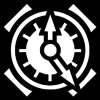
EXPERT
ARTISANS
Artisans bolster the actual production of goods and services, acting to support the productive activities of the Organization.

master
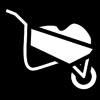
Foreman

Taskmaster

Sea Captain
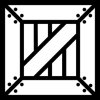
LOADMASTER
Tier 3
Tier 3 Merchant Organizations are usually in command of the most important resource of the local market, or the resource that the market is known for, and able to begin to organize the general commercial activity around their own needs.

MENTOR

FINANCIER

EXPRESSMAN

Tycoon
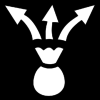
Sponsor
Tier 4
Brokers
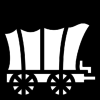
CARAVANEER

Shark
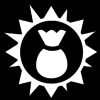
Investor

Paymaster

Troubleshooter
Tier 5

Magnate
OUTLAW Organizations
Tier 1
Tier 2
Rogues’ Gallery

SCOUNDREL
The Scoundrel is a Persuasive character who can make the most out of a Crisis by offering a way out for people in trouble. During a local Crisis, they can convert one Population of another type into Scum.

Prostitute
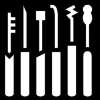
Burglar

Con Artist

Thug
Tier 2
Henchmen

Smuggler
The Smuggler may bring illicit or illegal goods into the city to be sold for a cost. By default the Smuggler may provide drugs and poisons. If provided with Influence, the Smuggler may acquire Malifica or heretical objects. During the Downtime, if given Influence, the Smuggler may bring another Agent from elsewhere into the city to perform their normal actions for 1 Chapter.

Fence

Grave Robber
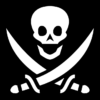
Pirate

Bandit
Tier 3
Tier 3 Outlaw Organizations are powerful groups that have a controlling hand in ongoing affairs, and are usually at least partially entrenched in the running of the City, whether anyone will admit it.
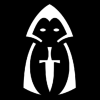
ASSASSIN

BLACKMAILER
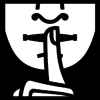
Warrenmaster

ARSONIST

DESPOILER
Tier 4
Operatives

SPY
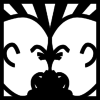
Provocateur
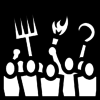
AGITATOR

Dark Wanderer
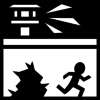
Profiteer
Tier 5
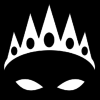
NEMESIS
Scholarly Organizations
Tier 1
Tier 2
Colleagues

RESEARCHER

ORATOR

Guardian

ASPIRANT

CATECHIST
Academia
Academia represents the support system that Scholarly Organizations use to facilitate their ongoing activities.
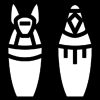
PROCURATOR

PRECEPTOR

Scholar

SCRIBE

ARCHIVIST
Tier 3
Tier 3 Scholarly Organizations generally have the ear and support of the local powers that be, and are seen as an essential resource for all manner of things, from public control to good decision making as a matter of course.
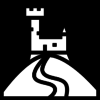
DEAN / Abbott
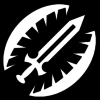
Chaplain / Battlemage

LIBRARIAN

Theorist

CASTIGATOR
Tier 4
Authorities

EXECUTOR

OVERSEER
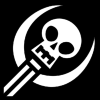
AUDITOR
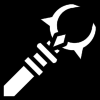
CELEBRANT

ideologue
Tier 5

